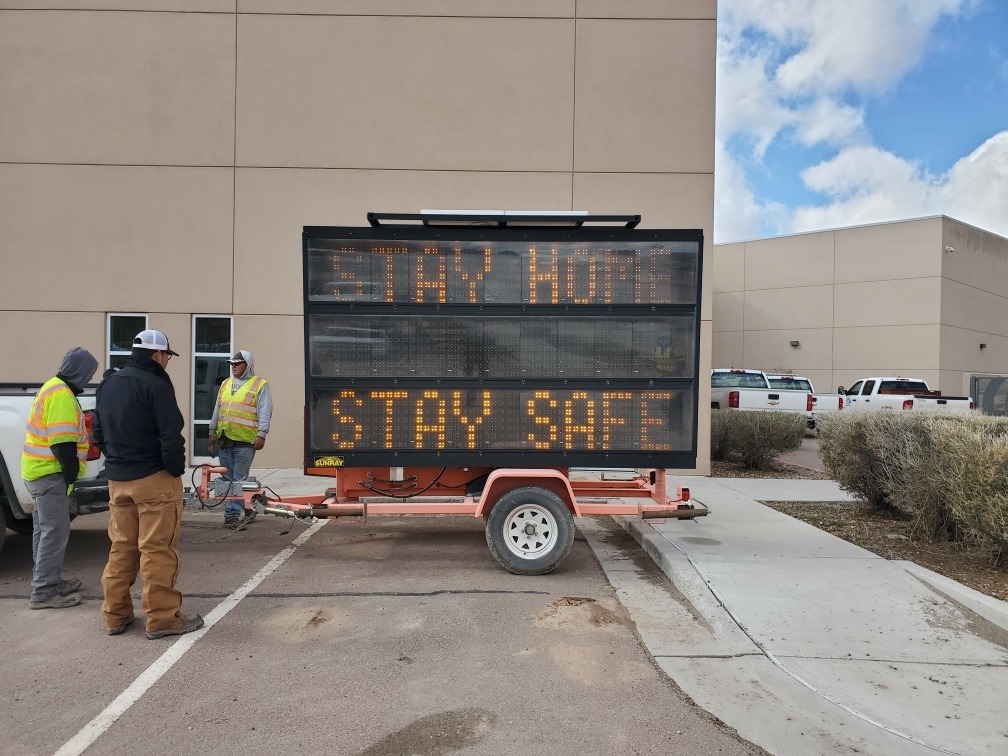
- Details
- By Native News Online Staff
WINDOW ROCK, Ariz. — On Friday, the Navajo Department of Health, in coordination with the Navajo Epidemiology Center and the Navajo Area Indian Health Service, reported 237 new Covid-19 positive cases for the Navajo Nation and 22 more deaths, which includes delayed reported deaths.
The total number of deaths is now 866 as of Friday. Reports indicate that 12,680 individuals have recovered from Covid-19, and 213,345 Covid-19 tests have been administered. The total number of positive Covid-19 cases is now 24,776, including 18 delayed reported cases.
Navajo Nation Covid-19 positive cases by Service Unit:
- Chinle Service Unit: 4,619
- Crownpoint Service Unit: 2,520
- Ft. Defiance Service Unit: 2,609
- Gallup Service Unit: 3,974
- Kayenta Service Unit: 2,333
- Shiprock Service Unit: 4,342
- Tuba City Service Unit: 2,801
- Winslow Service Unit: 1,546
* 32 residences with Covid-19 positive cases are not specific enough to place them accurately in a Service Unit.
On Friday, the state of Arizona reported 11,658 new cases, Utah reported 3,793, and New Mexico reported 1,645 new cases. The Navajo Nation’s 57-hour weekend lockdown begins on Friday, Jan. 8, 2021 at 8:00 p.m. (MST) until Monday, Jan. 11 at 5:00 a.m. (MST), which requires all Navajo Nation residents to remain home with the exception of essential workers and cases of emergencies.
“Everyone needs to stay home during the lockdowns, except to get essential items, cases of emergencies, or to report to work if you’re an essential worker. We have far too many people contracting Covid-19 and we are losing many of our people. As President, I am disheartened, and at times overwhelmed with grieving families and hearing of the loss of community members and I’m certain many of you are as well. I thank the majority of our people for adhering to the public health emergency orders, but we all have to do more to hold each other accountable. Too many are still putting themselves and others at unnecessary risks. Government and public safety can only do much with limited resources, so please do your part and stay home as much as possible,” Navajo Nation President Jonathan Nez said.
Due to consistent reports of high numbers of daily Covid-19 cases, the Navajo Department of Health issued Public Health Emergency Order No. 2021-001 on Thursday, which extends the stay-at-home order and 57-hour weekend lockdowns through Monday, Jan. 25, 2021. The order is available online at: https://www.ndoh.navajo-nsn.gov/COVID-19.
COVID-19 testing schedules are available online at the Navajo Health Command Operations Center website: https://www.ndoh.navajo-nsn.gov/COVID-19/COVID-19-Testing. For more information, including helpful prevention tips, and resources to help stop the spread of COVID-19, visit the Navajo Department of Health's Covid-19 website: http://www.ndoh.navajo-nsn.gov/COVID-19. For COVID-19 related questions and information, call (928) 871-7014.
More Stories Like This
Native News Weekly (August 25, 2024): D.C. BriefsUS Presidents in Their Own Words Concerning American Indians
Ethics Complaint Alleges Former Navajo Nation Chief of Staff Accepted Gifts From Contractor
Monday Morning (December 14, 2025): Articles You May Have Missed This Past Weekend
Native News Weekly (December 14, 2025): D.C. Briefs
Help us defend tribal sovereignty.
At Native News Online, our mission is rooted in telling the stories that strengthen sovereignty and uplift Indigenous voices — not just at year’s end, but every single day.
Because of your generosity last year, we were able to keep our reporters on the ground in tribal communities, at national gatherings and in the halls of Congress — covering the issues that matter most to Indian Country: sovereignty, culture, education, health and economic opportunity.
That support sustained us through a tough year in 2025. Now, as we look to the year ahead, we need your help right now to ensure warrior journalism remains strong — reporting that defends tribal sovereignty, amplifies Native truth, and holds power accountable.
 The stakes couldn't be higher. Your support keeps Native voices heard, Native stories told and Native sovereignty defended.
The stakes couldn't be higher. Your support keeps Native voices heard, Native stories told and Native sovereignty defended.
Stand with Warrior Journalism today.
Levi Rickert (Potawatomi), Editor & Publisher

